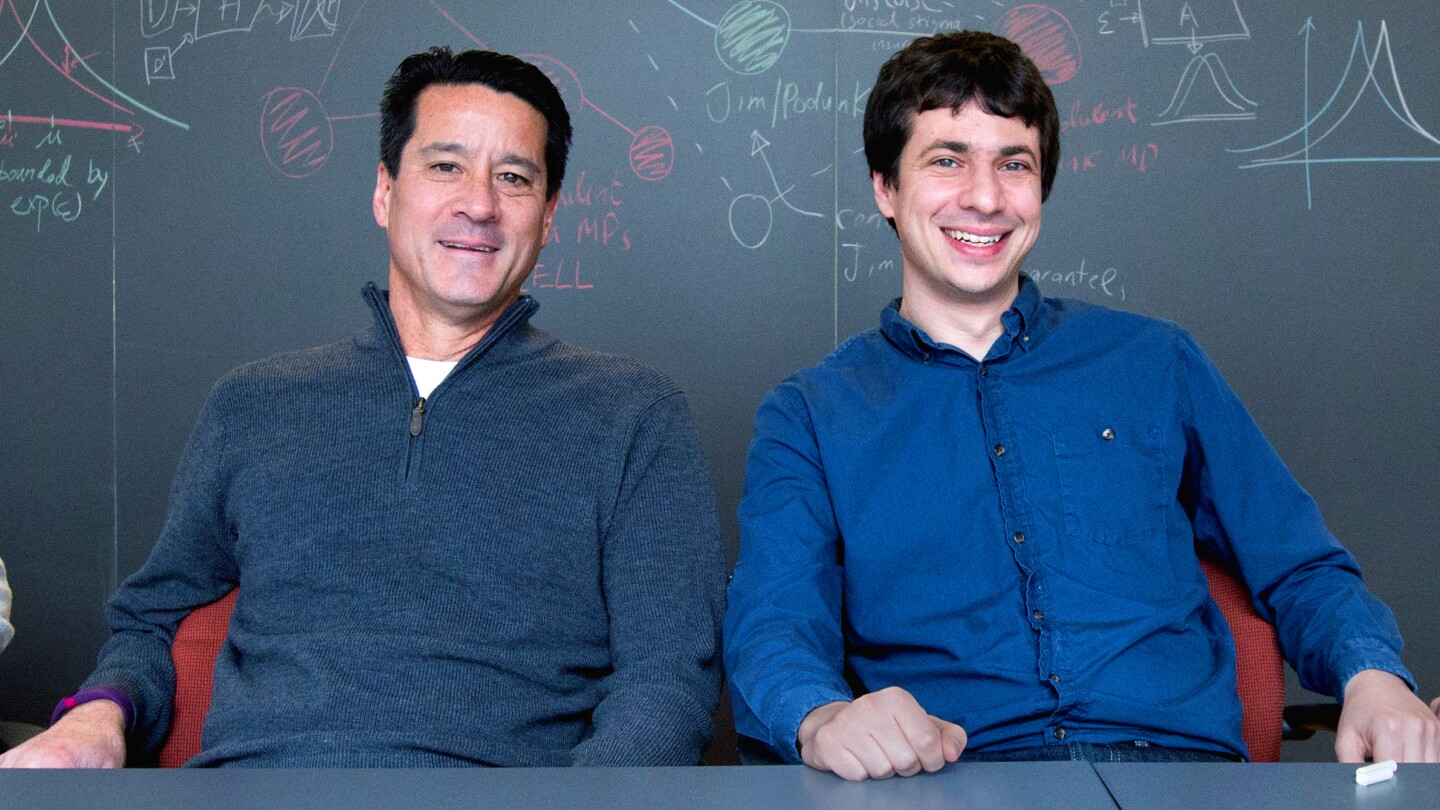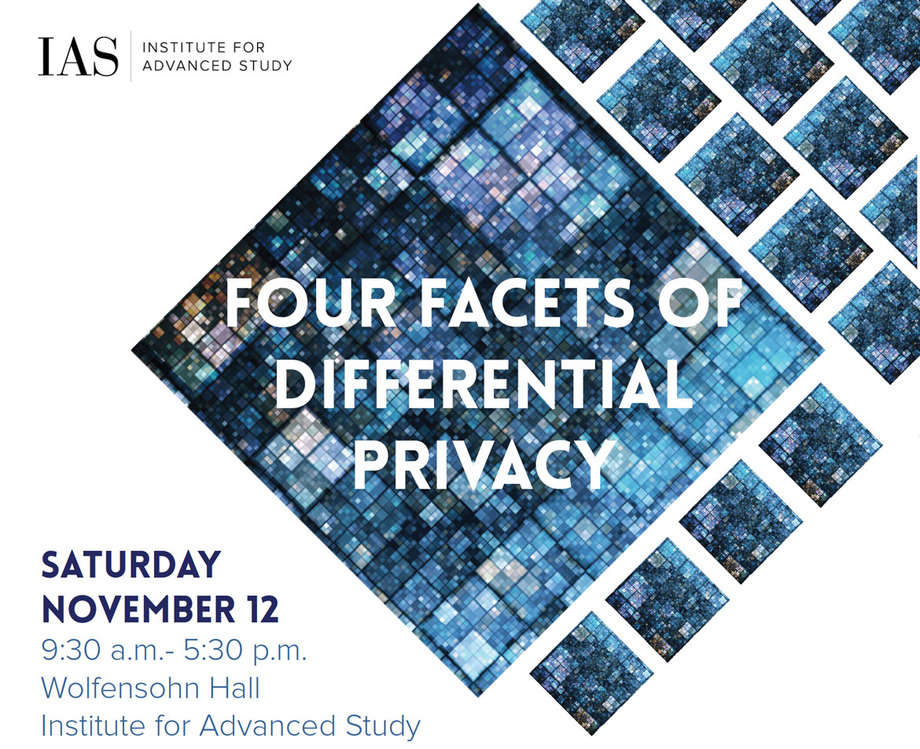In one of the final acts of his administration, President Biden celebrates 25 distinguished scientists and engineers. (I'm particularly glad to see Cynthia Dwork recognized for her work on differential privacy.)
Forbes has the story:
Biden Names 25 Recipients Of National Medals Of Science, Technology, by Michael T. Nietzel
In a statement from the White House, Biden said, “those who earn these awards embody the promise of America by pushing the boundaries of what is possible. These trailblazers have harnessed the power of science and technology to tackle challenging problems and deliver innovative solutions for Americans and for communities around the world.”
...
"The 14 recipients of the National Medal of Science are:
Richard B. Alley, the Evan Pugh University Professor of Geosciences at Pennsylvania State University. Alley researches the great ice sheets to help predict future changes in climate and sea levels.
Larry Martin Bartels, University Distinguished Professor of Political Science and Law and the May Werthan Shayne Chair of Public Policy and Social Science at Vanderbilt University. His scholarship focuses on public opinion, public policy, election science, and political economy.
Bonnie L. Bassler, Squibb Professor in Molecular Biology and chair of the Department of Molecular Biology at Princeton University, for her research on the molecular mechanisms that bacteria use for intercellular communication.
Angela Marie Belcher, the James Mason Crafts Professor of Biological Engineering and Materials Science and Engineering at MIT and a member of the Koch Institute for Integrative Cancer Research. She was honored for designing materials for applications in solar cells, batteries, and medical imaging.
Helen M. Blau, Donald E. and Delia B. Baxter Foundation Professor and the Director of the Baxter Laboratory for Stem Cell Biology at Stanford University for her research on muscle diseases, regeneration and aging, including the use of stem cells for tissue repair.
Emery Neal Brown, the Edward Hood Taplin Professor of Medical Engineering and Computational Neuroscience at MIT, was recognized for his work revealing how anesthesia affects the brain.
John O. Dabiri, Centennial Chair Professor at the California Institute of Technology, in the Graduate Aerospace Laboratories and Mechanical Engineering. His research focuses on fluid mechanics and flow physics, with an emphasis on topics relevant to biology, energy, and the environment.
Ingrid Daubechies, the James B. Duke Distinguished Professor Emerita of Mathematics at Duke University, was honored for her pioneering work on signal processing.
Cynthia Dwork, Gordon McKay Professor of Computer Science at Harvard University, was recognized for research that has transformed the way data privacy is handled in the age of big data and AI.
R. Lawrence Edwards, Regents and Distinguished McKnight University Professor, Department of Earth and Environmental Sciences at the University of Minnesota. Edwards is known for his refinement of radiocarbon dating techniques to study climate history and ocean chemistry.
Wendy L. Freedman, the John and Marion Sullivan University Professor in Astronomy and Astrophysics at the University of Chicago, for her observational cosmology research, including pioneering uses of the Hubble Space Telescope.
Keivan G. Stassun, Stevenson Professor of Physics & Astronomy at Vanderbilt University for his work in astrophysics, including the study of star formation and exoplanets.
G. David Tilman is Regents Professor and the McKnight Presidential Chair in Ecology, Evolution, and Behavior at the University of Minnesota. He studies biological diversity, the structure and benefits of ecosystems and ways to assure sustainability despite global increases in human consumption and population.
Teresa Kaye Woodruff is the MSU Research Foundation Professor of Obstetrics, Gynecology and Reproductive Biology and Biomedical Engineering at Michigan State University. She is an internationally recognized expert in ovarian biology and reproductive science.
The nine individual recipients of the National Medal of Technology and Innovation are:
Martin Cooper for his work in advancing in personal wireless communications for over 50 years. Cited in the Guinness Book of World Records for making the first cellular telephone call, Cooper, known as the “father of the cell phone,” spent much of his career at Motorola.
Jennifer A. Doudna, a Nobel Laureate in Chemistry and the Li Ka Shing Chancellor’s Chair in Biomedical and Health Sciences at the University of California, Berkeley. She is a pioneer of CRISPR gene editing.
Eric R. Fossum is the John H. Krehbiel Sr. Professor for Emerging Technologies at Dartmouth College. He invented the CMOS active pixel image sensor used in cell-phone cameras, webcams, and medical imaging.
Paula T. Hammond, an MIT Institute Professor, vice provost for faculty, and member of the Koch Institute, was honored for developing methods for assembling thin films that can be used for drug delivery, wound healing, and other applications.
Kristina M. Johnson, former president of The Ohio State University was recognized for research in photonics, nanotechnology, and optoelectronics. Her discoveries have contributed to sustainable energy solutions and advanced manufacturing technologies.
Victor B. Lawrence spent much of his career at Bell Laboratories, working on new developments in multiple forms of communications. He is a Research Professor and Director of the Center for Intelligent Networked Systems at Stevens Institute of Technology.
David R. Walt is a faculty member of the Wyss Institute at Harvard University and is the Hansjörg Wyss Professor of Bioinspired Engineering at Harvard Medical School and Professor of Pathology at Harvard Medical School and Brigham and Women’s Hospital. He was honored for co-inventing the DNA microarray, enabling large-scale genetic analysis and better personalized medicine.
Paul G. Yock is an emeritus faculty member at Stanford University. A physician, Yock is known for inventing, developing and testing new cardiovascular intervention devices, including the stent.
Feng Zhang, the James and Patricia Poitras Professor of Neuroscience at MIT and a professor of brain and cognitive sciences and biological engineering, was recognized for his work developing molecular tools, including the CRISPR genome-editing system."
#########
Here's my post from ten years ago:
Saturday, February 7, 2015 Differential Privacy: an appreciation of Cynthia Dwork




